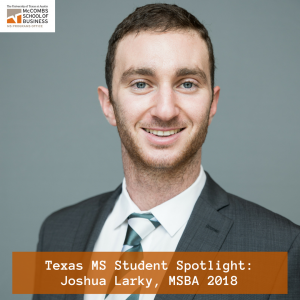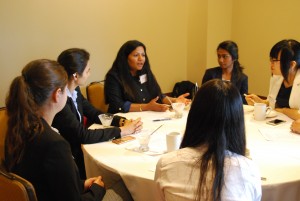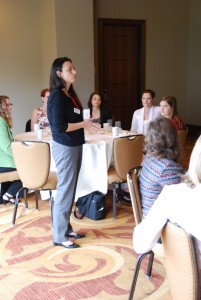When you hear the phrase “federal government,” innovation and productivity are probably not the first words that come to mind, but that is exactly what you can expect to find at the Data Analytics Division of the Department of Veteran Affairs (VA) Financial Services Center (FSC) located in Austin, Texas. In 2014, the newly appointed Secretary of Veteran Affairs, Robert McDonald, began a push to transform VA through a number of strategies ultimately designed to improve outcomes and experiences for VA employees and Veterans. The transformation process includes organizational, strategic, and data-driven initiatives across the entire enterprise. McDonald, a former CEO of Procter and Gamble, recognized that data-driven, evidence-based decision making can drive an organization to be more efficient and effective. Because of the increasing complexity of the federal government, scrutiny on outcomes for beneficiaries, legislative changes focused on data and analytics, and the recognition of the role that data analytics plays in improving outcomes and enabling the transformation vision; the Data Analytics Division was founded at FSC.
To understand the role of the Data Analytics Division, it is important to understand how the VA FSC operates. FSC handles all the accounting, audit, and payroll among other services at VA. However, unlike most divisions of the federal government, FSC is non-appropriated, meaning its funding is not allotted by Congress. Instead, it receives its funding from other VA organizations in return for the services it provides. In a sense, FSC acts like a consulting firm for other parts of the VA – or even other federal agencies – that work with FSC and require the services provided by FSC. As a part of FSC, the Data Analytics Division develops and deploys data analytics solutions for a variety of offices within the VA and is also postured to provide to other agencies across the federal government.
I had the honor this past week of sitting down and speaking to the Chief of the Data Analytics Division, Dr. Christopher Pate, about the work he does. Much of Dr. Pate’s time is spent speaking with other divisions at the VA about the services his team can provide. Though the nature of the projects varies dramatically, the Data Analytics Division follows a similar development cycle with each project. This starts with understanding the problem they are being asked to solve, the data that are available, and the requirements for an effective solution. Once the problem is fully outlined, the data analytics team begins to develop their advanced models before adapting them into a user-friendly solution that will ultimately be deployed to their customer. You might be surprised to learn, as I was, that a government agency uses Agile Development, but the Data Analytics Division does just that, making their whole process iterative as opposed to linear. (If you are interested in learning more about Agile Development, look up “Spotify Agile Development” on YouTube.)
Because of the constant interest in their solutions from other departments, Dr. Pate has grown his division from just three employees to 21 in a little over a year. These employees have a wide variety of skills that they bring to bear in developing solutions for their customers, but Dr. Pate does not restrict his employees to working within their specific skill set. If a member of his team is interested in working outside of their expertise, Dr. Pate encourages that interest, believing the knowledge gained will not only be beneficial to that employee personally but will also enhance the overall effectiveness of his team.
Encouraging this experimentation is just a small part of the environment Dr. Pate is developing to make his team as successful as possible. He also encourages his employees to be engaged in continuous learning by attending analytics meetups, using training resources, and being engaged in industry organizations like the American Society for Quality (ASQ), and the Institute for Operations Research and Management Science (INFORMS) to stay up-to-date on industry practices. In addition, the Data Analytics Division uses a range of leading visualization and analytic technologies, such as TIBCO Spotfire, to provide the full spectrum of business intelligence and analytics support to VA customers.
One of the most important partnerships Dr. Pate has recently initiated is with McCombs. A former dean, Dr. Pate recognizes the value in industry partnerships with academia and reached out to the MSBA program to begin developing this mutually beneficial relationship. As a first step in this partnership, Dr. Pate became a member of the MSBA Advisory Council. Being a member of this council allows Dr. Pate to stay aware of what is going on within the program and learn about its students in addition to helping the program by ensuring it is teaching its students the skills they need to be valuable within the industry. The Data Analytics Division is also providing a capstone project for the program. This capstone will give students the opportunity to work with actual companies and gain hands-on experience while providing a service to those companies.
The work with the MSBA program is just the first step in what will become a permanent relationship that benefits McCombs as well as the VA. The dean of McCombs, Jay Hartzell, recently signed a Memorandum of Understanding to that effect. Down the road, Dr. Pate plans on partnering with McCombs faculty in their research, potentially providing internships to undergraduate students, and developing an innovative and data sharing environment that allows students and faculty in McCombs to develop their own abilities while providing solutions to VA.
This partnership, of course, is about more than the benefit of two organizations. At the end of the day, the Data Analytics Division is a part of the Department of Veteran Affairs. As they develop solutions that improve the efficiency of VA, it means more time and money can be spent directly caring for our Veterans. Dr. Pate, who was a member of the Army for 25 years and comes from a large family of Veterans, is well aware of the defining mission of VA. He hopes his team can develop products that directly benefit Veterans and potentially provide better access to resources. Undoubtedly, whether performed by a member of the Data Analytics Division or a student at McCombs, there is an intrinsic worth in the work done for VA.
-Chase Slocum
 Program:
Program:
 Program:
Program:





 This summer was by far the best of my life. Not only did I start the MSBA program, which so far has been a blast, but I also got to live out my dream of working at NASA. I was an intern at Jet Propulsion Laboratory, where I worked on an open source scientific processing platform called
This summer was by far the best of my life. Not only did I start the MSBA program, which so far has been a blast, but I also got to live out my dream of working at NASA. I was an intern at Jet Propulsion Laboratory, where I worked on an open source scientific processing platform called 
